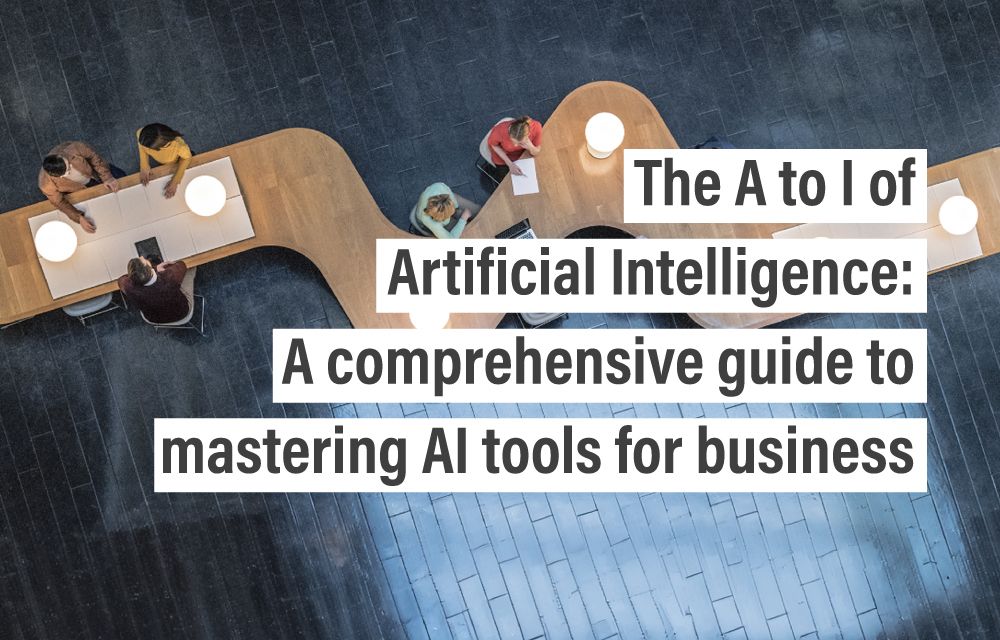Comprehensive Guide to Secure AI Solutions for Business

Comprehensive Guide to Secure AI Solutions for Business
Estimated reading time: 15 minutes
Key takeaways:
- Understanding the need for secure AI in businesses
- Best practices for AI data privacy
- Real-world examples of secure AI applications
The Importance of Secure AI Solutions for Business
AI technology has become a game-changer across various sectors, enabling companies to enhance efficiency, personalize customer experiences, and make data-driven decisions. However, utilizing AI also raises significant concerns about data security. This is where secure AI solutions step in, serving as a critical component for:
- Protecting sensitive information: Secure AI systems ensure that personal and business data are safeguarded against unauthorized access and breaches.
- Ensuring regulatory compliance: With regulations like GDPR and the California Consumer Privacy Act, businesses must adopt compliant AI solutions that respect privacy laws.
- Maintaining a competitive edge: Implementing advanced security in AI systems can be a significant differentiator for businesses, offering customers peace of mind and establishing a reputation for reliability and ethics (Securitas, 2023).
AI Data Privacy for Small Businesses
For small businesses, AI opens opportunities but also creates unique privacy challenges. Small business owners must be vigilant in:
- Evaluating AI platforms' privacy policies: Understanding the mechanisms for data protection provided by platforms is crucial.
- Avoiding sensitive information inputs: Limiting the type of data fed into AI systems can mitigate potential breaches.
- Implementing enterprise-grade security: Small businesses should adopt robust security measures, including firewalls and encryption, to protect their AI interfaces.
- Utilizing VPNs and regular updates: Enhancing network security and keeping software up-to-date are simple yet effective strategies for safeguarding AI systems against vulnerabilities.
Understanding Confidential AI Systems
Confidential AI systems are designed to provide stringent security throughout the AI lifecycle, protecting crucial elements like training data and AI models. The benefits include:
- Secure model training and tuning: These systems prevent exposure of proprietary data and algorithms, essential for maintaining competitive advantages.
- Privacy-enhanced technology applications: Use cases in sensitive areas such as healthcare benefit significantly from confidential AI, ensuring patient data privacy and trust (Microsoft Azure, 2023).
How AI Protects Customer Data
AI not only processes data but can actively protect it. By leveraging AI, businesses can enhance their security protocols through:
- Advanced threat detection: AI systems can identify and respond to security threats faster and more accurately than ever before.
- Real-time monitoring: Continuous oversight of network activities helps in spotting and mitigating potential breaches swiftly.
- Predictive threat analysis: AI's ability to forecast attack vectors based on pattern recognition is invaluable for preemptive security measures (Securitas, 2023).
Secure Offline AI Tools
Some businesses opt for offline AI tools to maintain control over their data. These tools provide:
- Enhanced data sovereignty: Data is processed and stored within the company’s premises, minimizing exposure to external threats.
- Customizable security features: Businesses can tailor security measures to fit specific needs without depending on third-party configurations.
Implementing Secure AI in Your Business
Integrating secure AI into business operations involves strategic planning and rigorous procedures:
- Establish AI governance: Define clear policies on AI ethics and data usage.
- Risk assessment: Identify and evaluate potential security risks associated with AI deployments.
- Data classification and encryption: Not all data possess the same sensitivity; classify and encrypt information accordingly.
- Adopt a zero-trust architecture: Assume no entity is trustworthy by default, whether inside or outside of the network.
- Regular system updates: Keep all AI-related systems up-to-date to protect against newly emerging threats.
Best Practices for Maintaining AI Data Privacy
Ongoing vigilance is essential in maintaining AI data privacy:
- Thorough access controls: Restrict data access based on roles and responsibilities.
- Audit and monitor data usage: Regular reviews and monitoring help in identifying any unauthorized access or anomaly in data usage.
- Employee training: Educate staff about the latest security and privacy protocols.
- Stay informed: Keeping abreast of new regulations and technologies can help in tweaking privacy practices proactively.
Case Studies of Businesses Using Secure AI Solutions
Real-world applications of secure AI demonstrate its potential and versatility across industries:
- Financial institutions leverage confidential AI for robust fraud detection mechanisms.
- Healthcare providers utilize secure AI tools to manage and analyze patient data sensitively and securely.
- Retail businesses improve customer service through AI while ensuring transaction data remains confidential (Microsoft Azure, 2023).
Future Trends in Secure AI for Businesses
As AI technology evolves, so do the methods to secure it. The future of secure AI looks promising, with trends leaning towards:
- Federated learning: This advanced approach allows for collaborative machine learning without compromising data privacy.
- Blockchain for data traceability: Integrating blockchain can add a layer of security and transparency to AI operations.
- Homomorphic encryption: This technique allows AI systems to process encrypted data, providing security without accessibility compromises (EDX, 2023).
Conclusion
As businesses continue to harness AI's potential, integrating secure solutions is paramount to protect vital data and maintain public trust. By following best practices, staying informed about technological advancements, and implementing robust security measures, companies can leverage AI's benefits while ensuring data integrity and privacy. Engaging with secure AI solutions is not just about technology adoption; it's about paving the way for responsible and sustainable business growth in the digital age.
Internal Links:
1. Offline AI Tools - Discusses the enhanced data sovereignty and customizable security features of offline AI tools.
2. Regulatory Compliance - Highlights the challenges of adhering to data protection laws and how on-premises AI solutions assist in compliance.
3. Benefits of AI - Outlines the advantages of AI, including efficiency, cost savings, and improved customer experiences.
4. Real-World Uses of AI - Demonstrates various AI applications across industries like healthcare, finance, transportation, and customer service.
5. Data Privacy and Confidentiality - Emphasizes the importance of data privacy in AI Guru's solutions and how offline AI ensures secure data processing.




